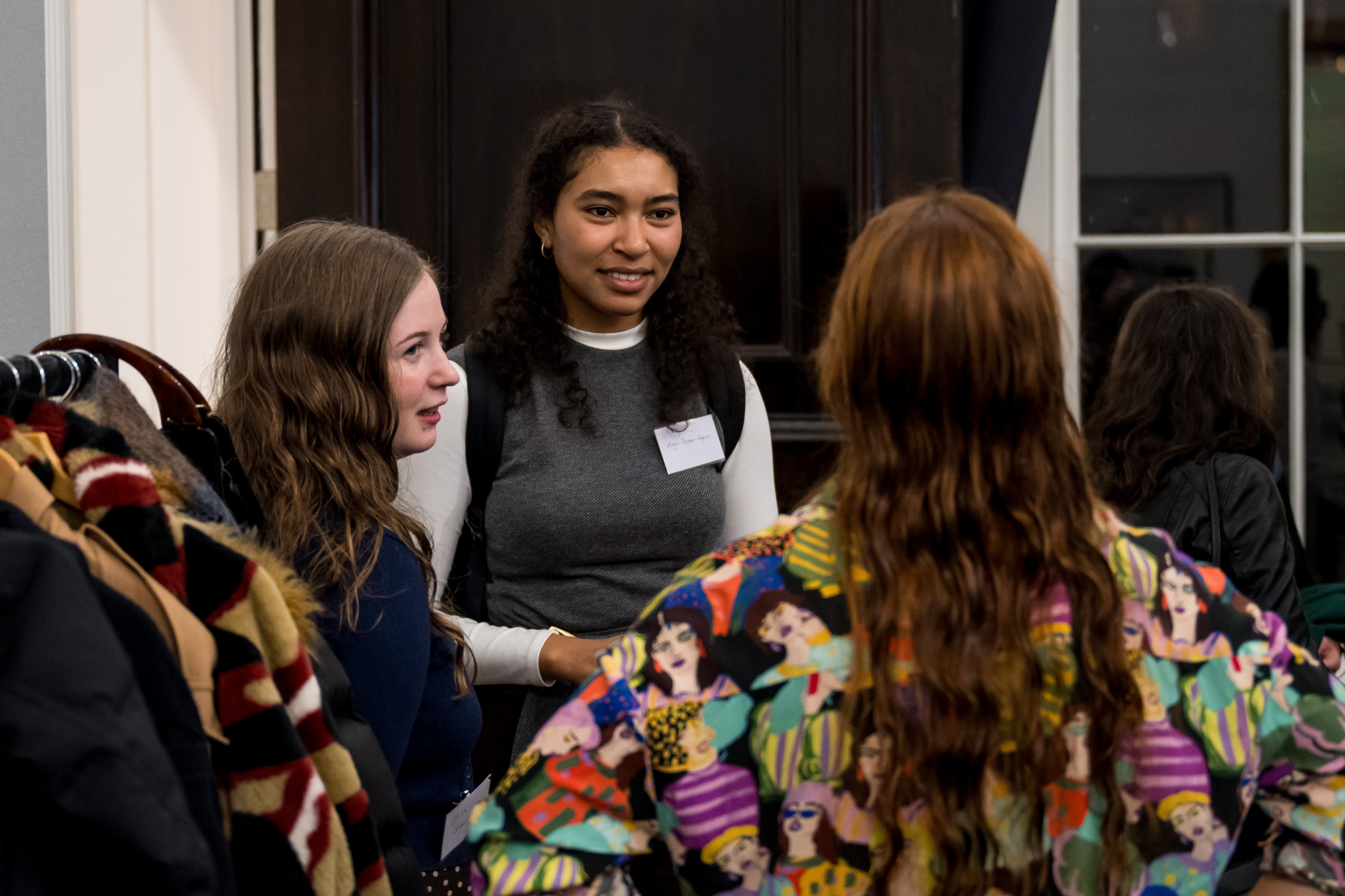Meet Megan, a BEng, Graduate Systems Engineer and swiftie, whilst you find out more about her role and what it entails!
What was your school experience like?
Meet Megan, a BEng, Graduate Systems Engineer and swiftie, whilst you find out more about her role and what it entails!
What was your school experience like?
Being dyslexic made school a challenging, uphill journey for me. As a perfectionist, I often expended significant energy trying to keep up with my classmates. I would not wish to re-live the pressure of performing well in end-of-year exams, as it did not fit my learning style or skill set.
Support from teachers in STEM subjects varied. I recall a parent’s evening in Year 9, where I was advised to reconsider choosing Systems and Controls, my favourite subject, since it was expected I would be the only girl. Back then, my response was simple: “So what?” I hadn’t fully grasped the impact of gender stereotypes or how challenging it would be to be the only one in the room. However, I achieved the highest mark in my year group, which was a win! In stark contrast, my computing teacher was a true role model throughout my five years of secondary school. She encouraged me to join an after-school coding program run by a local company when I was in Year 8, supported my decision to take Computer Science for both GCSE and A-level and gave me the confidence to pursue a career in STEM.
Did you attend university or opt for an apprenticeship?
I chose to attend university. During my time in school, apprenticeships weren’t particularly encouraged. After staying at my high school’s sixth form for my A-levels, university felt like a great choice. Not only for my personal development, but also to step outside my comfort zone. I enjoyed learning and wanted to deepen my understanding of engineering as a whole. Both choices have their pros and cons; the trick is to focus on what path feels right for you at the time.
If you pursued further education, what did you study? Did you enjoy it?
I decided to study electrical and electronic engineering. At this time, I was certain that I wanted a degree in engineering, but my choice was instinctual. I felt that electrical engineering would be something I would enjoy. I’d enjoyed A-level physics and reviewed all the course descriptions. My university also had a common first term for all 1st year engineering students, so we had the ability to swap specific disciplines if we wanted.
Unfortunately, I was one of many graduates affected by COVID. I experienced the first lockdown during my second term of the first year. Then, we weren’t encouraged to return to campus until my final year. Despite this, I enjoyed my time at university and got involved in societies. I even ran one in my final year, made friends for life and grew so much as a person.
By the end of my degree, I had started to realise that my passion for electrical engineering didn’t match that of my classmates. I opted to pivot away from engineering and explore a career in finance, which had also been an option I’d considered before university. Within a year, I realised it wasn’t the right fit for me, I was working hard, received an award, and got a qualification in bookkeeping; but the desire to return to engineering was stuck in my mind. So, I began searching for engineering opportunities which led me to Thales’ graduate program. I’m now halfway through my early careers program and I’ve never looked back!
Did your education contribute to your success, or were your soft skills more crucial?
My university education certainly played a significant role in starting my career. I graduated with a first-class honours BEng, which enabled me to apply for graduate schemes in engineering. While my academic qualifications allowed me to meet the eligibility criteria, I believe it was my soft skills that truly secured my job offer.
I applied for a systems engineering graduate scheme at Thales, which isn’t directly related to my electrical and electronic background, but the skills I acquired during my studies, such as report writing, presentation skills, problem-solving, time management, communication, and teamwork, are all transferable. During the interview and group tasks at my assessment centre, I was able to demonstrate my emotional intelligence, interpersonal skills, problem-solving abilities, communication skills, and personality. I genuinely believe it was my soft skills that helped me stand out during the assessment centre and ultimately led to me receiving a job offer on the same day.
What do you enjoy most about your current role?
I truly appreciate the variety of work I engage in. For me, the most significant aspect is the culture and the people I collaborate with. Also, coming from a military family, I take immense pride in my work, knowing that I contribute to the safety and support of individuals like my father and brother gives me a greater sense of purpose.
What does the future hold for you?
In the next few years, I plan to complete my postgraduate diploma while continuing my graduate scheme. Long-term, the future could lead me in many directions. I hope for a diverse and interesting career, whether that means pursuing an engineering chartership, growing into a people leader, becoming a technical expert, remaining in engineering, or exploring new paths. The possibilities are limitless and I’m excited to see what the future holds.
What advice would you give to your younger self?
The advice I would share with my younger self is to embrace what makes you unique. As a woman in STEM, you’re bound to stand out, and while that might feel uncomfortable at times, own it. Take pride in who you are and don’t worry about others’ opinions. Also, don’t worry too much about the future, what’s meant to be will happen and a ‘no’ is often just a redirection to help guide you along your journey.
And for any Swifties out there, here’s a quote that really resonated with me: “Life can be heavy, especially if you try to carry it all at once. Part of growing up and moving into new chapters of your life is about catch and release. What I mean by that is: Knowing what things to keep and what things to release. You can’t carry all things … Decide what is yours to hold and let the rest go. … You get to pick what your life has time and room for.” – Taylor Swift, NYU graduation speech 2022
Did you attend university or opt for an apprenticeship?
I chose to attend university. During my time in school, apprenticeships weren’t particularly encouraged. After staying at my high school’s sixth form for my A-levels, university felt like a great choice for my personal development and to step outside my comfort zone. I enjoyed learning and wanted to deepen my understanding of engineering as a whole. Both choices have their pros and cons; the trick is to focus on what path feels right for you at the time.
If you pursued further education, what did you study? Did you enjoy it?
I decided to study electrical and electronic engineering. At this time, I was certain that I wanted a degree in engineering, but my choice was largely based on instinct. I felt that electrical engineering would be something I would enjoy, particularly after taking A-level physics and reviewing the course descriptions available. My university also had a common first term for all 1st year engineering students, so we had the ability to swap specific disciplines if we wanted.
Unfortunately, I was one of many graduates impacted by COVID. I experienced the first lockdown during my second term of first year, and we weren’t really encouraged to return to campus until my final year. Despite this, I genuinely enjoyed my time at university, I got involved in numerous societies, even ran one in my final year, made friends for life and grew so much as a person.
By the end of my degree, I had started to realise that my passion for electrical engineering didn’t match that of my classmates. I opted to pivot away from engineering and explore a career in finance, which had also been an option I’d considered before university. Within a year, I realised it wasn’t the right fit for me, I was working hard, received an award, and got a qualification in bookkeeping; but the desire to return to engineering was stuck in my mind. So, I began searching for engineering opportunities which led me to Thales’ graduate program. I’m now halfway through my early careers program and I’ve never looked back!
Did your education contribute to your success, or were your soft skills more crucial?
My university education certainly played a significant role in starting my career. I graduated with a first-class honours BEng, which enabled me to apply for graduate schemes in engineering. While my academic qualifications allowed me to meet the eligibility criteria, I believe it was my soft skills that truly secured my job offer.
I applied for a systems engineering graduate scheme at Thales, which isn’t directly related to my electrical and electronic background, but the skills I acquired during my studies, such as report writing, presentation skills, problem-solving, time management, communication, and teamwork, are all transferable. During the interview and group tasks at my assessment centre, I was able to demonstrate my emotional intelligence, interpersonal skills, problem-solving abilities, communication skills, and personality. I genuinely believe it was my soft skills that helped me stand out during the assessment centre and ultimately led to me receiving a job offer on the same day.
What do you enjoy most about your current role?
I truly appreciate the variety of work I engage in. For me, the most significant aspect is the culture and the people I collaborate with. Also, coming from a military family, I take immense pride in my work, knowing that I contribute to the safety and support of individuals like my father and brother gives me a greater sense of purpose.
What does the future hold for you?
In the next few years, I plan to complete my postgraduate diploma while continuing my graduate scheme. Long-term, the future could lead me in many directions. I hope for a diverse and interesting career, whether that means pursuing an engineering chartership, growing into a people leader, becoming a technical expert, remaining in engineering, or exploring new paths. The possibilities are limitless and I’m excited to see what the future holds.
What advice would you give to your younger self?
The advice I would share with my younger self is to embrace what makes you unique. As a woman in STEM, you’re bound to stand out, and while that might feel uncomfortable at times, own it. Take pride in who you are and don’t worry about others’ opinions. Also, don’t worry too much about the future, what’s meant to be will happen and a ‘no’ is often just a redirection to help guide you along your journey.
And for any Swifties out there, here’s a quote that really resonated with me: “Life can be heavy, especially if you try to carry it all at once. Part of growing up and moving into new chapters of your life is about catch and release. What I mean by that is: Knowing what things to keep and what things to release. You can’t carry all things … Decide what is yours to hold and let the rest go. … You get to pick what your life has time and room for.” – Taylor Swift, NYU graduation speech 2022





